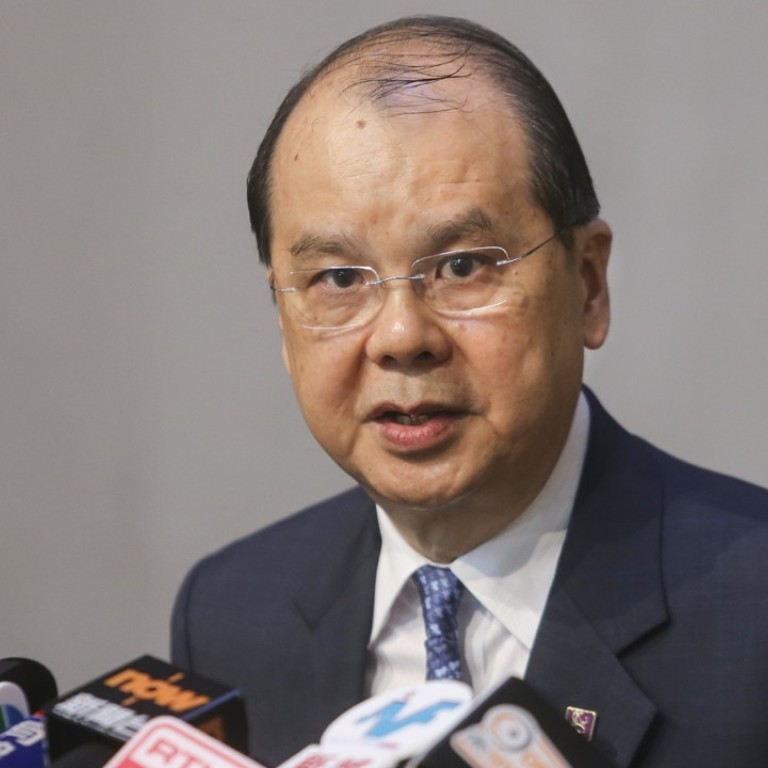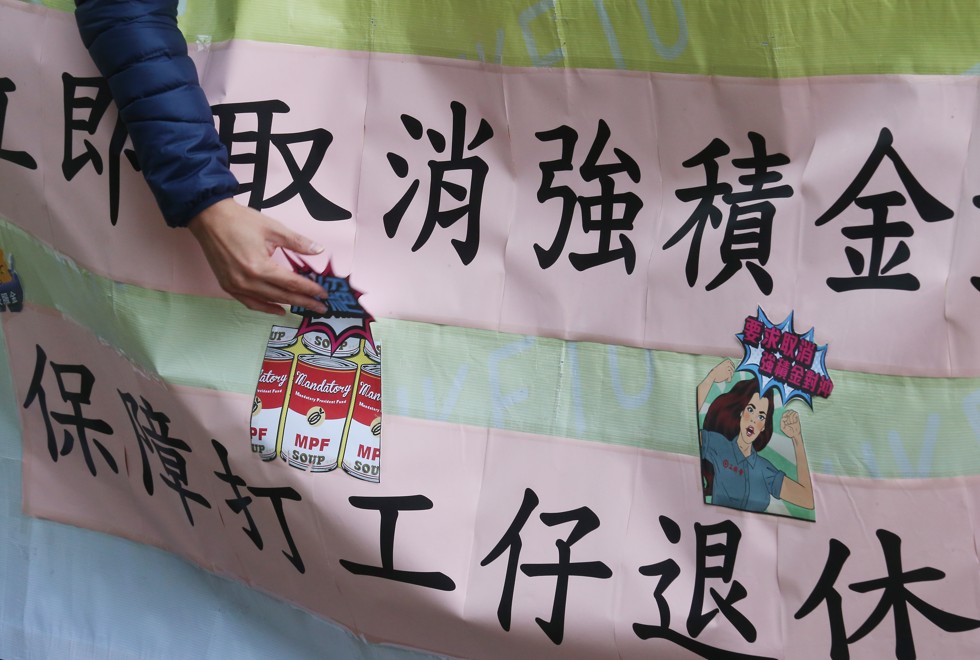
Hong Kong’s new government seeks to settle pension fund controversy by end of the year
Matthew Cheung says government may offer businesses more money to ease their financial burden once the offset mechanism is abolished
Hong Kong’s new government is seeking to work out by the end of the year a revised version of the previous administration’s controversial plan to scrap a much-criticised system that allows employers to dip into workers’ pension funds for severance and long-service payments.
Chief Secretary Matthew Cheung Kin-chung said on Wednesday that the government had been holding intense discussions with the business sector on how to revise the plan, a hot potato left on Chief Executive Carrie Lam Cheng Yuet-ngor’s plate by her predecessor Leung Chun-ying.
The city’s No 2 official said the government was considering increasing the HK$7.9 billion in subsidies to be given to businesses over a 10-year period as part of the original plan to get rid of the so-called offsetting mechanism under the Mandatory Provident Fund (MPF) scheme.
Cheung, who dealt with the contentious issue when he was labour minister, revealed the government’s latest plan in a wide-ranging briefing for senior journalists on Wednesday.
Under the current system, employers are entitled to use their portion of contributions to the MPF scheme to offset severance or long-service payments.
Workers have long complained against the practice, which they see as the legalised plunder of their retirement savings.
At the same time, the amount payable after the effective date would be adjusted downwards from the existing entitlement of two-thirds of the last month’s wages to half as compensation for each year of service.
Cheung said: “The government is determined to scrap the offsetting mechanism. We accept that it should have a role to play and we will consider whether the government should take a further step. Maybe with more investment, we may be able to iron out the differences.”
He did not go into detail about the revised plan but said he hoped to see a “breakthrough” by the end of the year.
Cheung also noted that the business sector was exploring ways to make the payment system sustainable after the 10-year period.
The new labour and welfare minister, Dr Law Chi-kwong, is expected to meet the Federation of Trade Unions (FTU) and the Federation of Hong Kong and Kowloon Labour Unions soon to discuss the matter. He is also likely to meet Labour Advisory Board members next week.
Unionist Bill Tang Ka-piu of the FTU, who is also an employee representative on the board, said: “I appreciate that the government has set a time frame for scrapping the mechanism. That is a good start. But Cheung’s idea seems to be that the government only cares about the business sector. Workers will still see their long-service payment cut.”
Hong Kong General Chamber of Small and Medium Business president Joe Chau Kwok-ming also expressed reservations.
“More government funding is of course good. But the money will one day be used up,” Chau said.
“We don’t see an urgency. There is no need to set a deadline. The system has been running for almost 20 years and it has been running smoothly.”
In her election manifesto, the city’s new leader had promised to “listen to both the employees and employers, especially those from small and medium enterprises, and strive to reach a consensus”.
“We will proactively follow up various measures to optimise the MPF system and examine the public annuity scheme in order to provide better protection for retirees,” Lam’s manifesto said.
Cheung added that the government had no plan to touch controversial political issues such as electoral reform in the first half of Lam’s five-year term.
He said the government preferred to focus more on livelihood issues, such as narrowing the widest income gap on record, so that Hong Kong people could feel hope after seeing society progress.
“Then in the second half, we may see whether there can be better conditions to start more controversial topics,” Cheung said.



